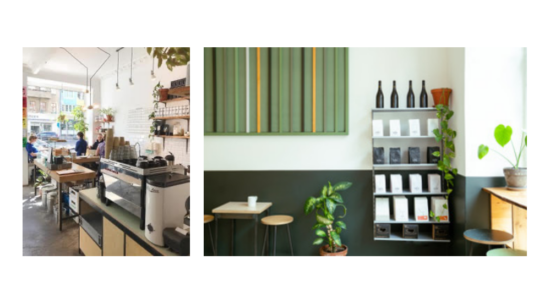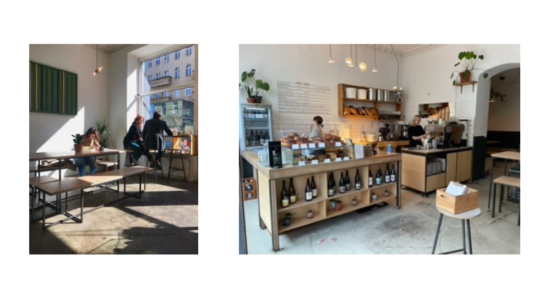
Today’s workforce is increasingly working outside the office. Is that actually beneficial for cafés?
BY TANYA NANETTI
SENIOR ONLINE CORRESPONDENT
Cover photo by Nguyen Dang Hoang Nhu on Unsplash.
Digital nomadism is a fairly recent phenomenon, spread both thanks to the COVID-19 pandemic and to the growing digitalization of many different jobs. Nowadays, many people no longer work from a real office, but from their own homes, or from public spaces such as co-working situations, libraries, and of course coffee shops.
But are all cafés willing to host digital nomads?
To Laptop or Not to Laptop
A debate is opening up in the coffee community about the ever-increasing presence of digital nomads and laptop workers in coffee shops. Do they consume enough? Do they act fairly and respectfully toward the business and other customers? Is their presence a help for the business or the other way around?
Peter Duran, co-founder of Isla Coffee—a completely laptop-free specialty coffee shop in the heart of Berlin—offers his take on digital nomads.

Photo by Peter Duran.
Barista Magazine: Hi Peter, I’d like to start with a point-blank question: What do you think of this “new wave” of digital nomads?
Peter: To be honest, I don’t have the best impression of digital nomads. As a café that lives on regular customers and someone that enjoys the relationships that develop from those types of interactions, the nature of digital nomadism seems too transitory and transactional to me. It quite often feels like people with means going where they can get the most bang for their buck without contributing anything ostensible to the fabric of the society they’re living in, for whatever timeframe that might be. I’d much prefer tourists interested in things other than cheap rent and having cafés that look the same all over the world.
What is Isla’s policy regarding laptops and digital nomads? Do you offer Wi-Fi?
No Wi-Fi, no laptops. We want to be a place where people come to meet each other or be alone, but leave the stress of work outside. Even if they enjoy our work, our guests appreciate the opportunity to not be in such an environment.
Necessary Changes
Was it like that from the start, or did it change along the way? What were the reasons for this change?
It’s changed over the years, as it has become clear to me what the implications and costs of allowing “co-working” are. At the beginning, we were grateful for every customer. As time goes on, we’ve become more grateful to those customers that are invested in things other than a cheap workspace and Wi-Fi—as is fair for our staff and our financial viability. Now we’ve got a big team and we need good turnover to remain the lively, dynamic place we have become.
What is an average day at Isla regarding digital nomads? Do you have a lot of people who ask about laptops? Do people follow the rules?
We have some people who ask, most understand, some complain and a select few choose to break the rule, upon which I invite them to their café and show them the door. I find it terribly rude for someone to come to our house and not respect our rules. 3.20 euros buys you a cappuccino, great service, and a smile, no more, no less.

Cater to Your Crowd
Do you have a lot of complaints about the no-laptop rule? Maybe bad reviews about it? Or conversely, are customers happy about it??
Most customers love it and say they do, even if they came to work themselves. A few people have complained, but my argument is always that “workplace” isn’t one of the services we offer. It’s become a weird type of entitlement that has developed amongst specific communities, that they can turn any place that serves coffee into a workplace. You wouldn’t do that in other places of service that rely on turnover, like a hair salon, why do it at a café?
Business-wise, many coffee shop owners fear that cutting off digital nomads will kill the profit. What has your experience been? How has the profit and the number of customers changed?
We’re much more profitable now than we were before. I think we’re in a position where we’re busy because we’re established and our size is manageable. I think some larger or newer spaces struggle to match turnover with running costs and are “forced” to try and fill the place by allowing co-working. However, even if Isla isn’t always 100% full, we do more business in total (measured simply by the number of transactions) than we do with a café full of people sitting for three or four hours and spending a max of 10-12 euro. One of my staff members costs at least 16 euros per hour including insurance and the like, so it’s not hard to comprehend the math behind this.
What can you suggest to coffee shop owners on how to relate with digital nomads?
I’d say that coffee shop owners should first try to understand who their target market is. What do these people want? Are you happy providing that service? What does that have to look like for you to be financially viable and feel satisfaction on a day-to-day basis? Some cafés limit the laptops to certain areas or times, which can work. But, I find that entering a territory where exceptions are made leads to the lines being blurry and customers feeling that there is preferential behavior toward some and not others.
Remain Mindful
And what about the opposite? Any suggestion you want to share with digital nomads on how to properly act in a coffee shop, helping the business?
I think most digital nomads just have to look up from the screen and do a quick scan of where they are. What does their presence mean for the space? Is it enriching and mutual? Or exploitative and parasitic? Just a little self-awareness and respect toward the rules are enough I’d say.
Is there anything else you want to share regarding the topic “digital nomads” and their relationship with coffee shops?
I’ve got quite a harsh view on these things most of the time, but I’m not flat-out against digital nomadism. I just think like anything, we need to ask “for whom” and “at whose cost”? Some cafés can afford and benefit from these types of customers and others don’t.
In conclusion, are you happy about your choice regarding Isla and digital nomads?
Very happy and so are my team and customers!
ABOUT THE AUTHOR
Tanya Nanetti (she/her) is a specialty-coffee barista, a traveler, and a dreamer. When she’s not behind the coffee machine (or visiting some hidden corner of the world), she’s busy writing for Coffee Insurrection, a website about specialty coffee that she’s creating along with her boyfriend.




